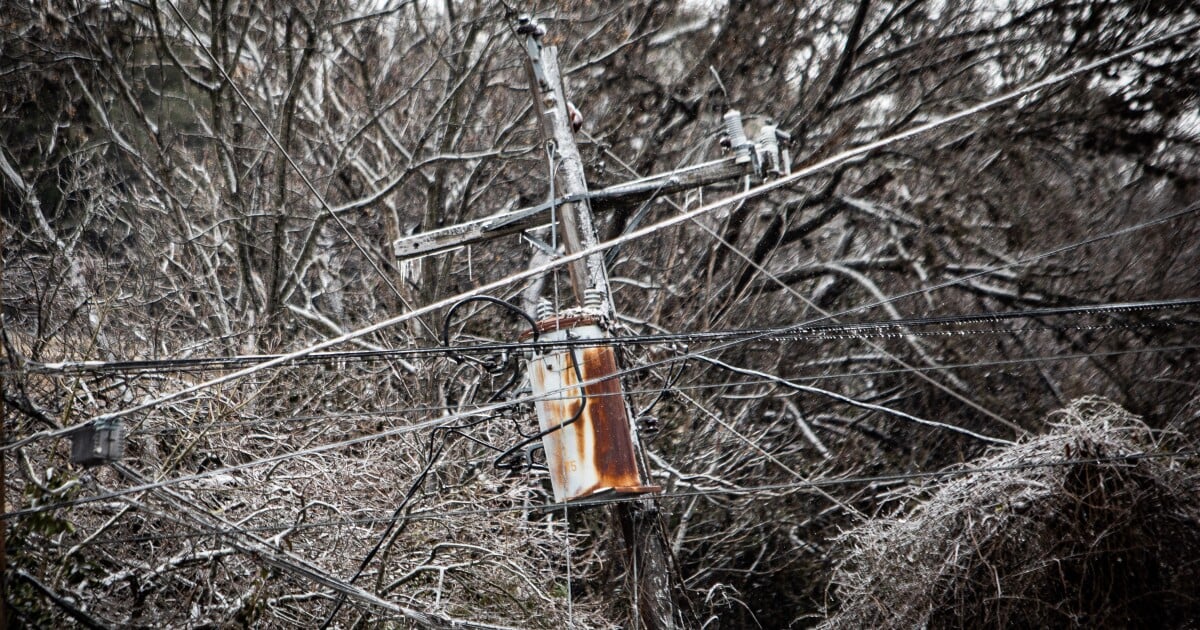- cross-posted to:
- politics@lemmy.world
- cross-posted to:
- politics@lemmy.world
Almost three years since the deadly Texas blackout of 2021, a panel of judges from the First Court of Appeals in Houston has ruled that big power companies cannot be held liable for failure to provide electricity during the crisis. The reason is Texas’ deregulated energy market.
The decision seems likely to protect the companies from lawsuits filed against them after the blackout. It leaves the families of those who died unsure where next to seek justice.
In February of 2021, a massive cold front descended on Texas, bringing days of ice and snow. The weather increased energy demand and reduced supply by freezing up power generators and the state’s natural gas supply chain. This led to a blackout that left millions of Texans without energy for nearly a week.
The state has said almost 250 people died because of the winter storm and blackout, but some analysts call that a serious undercount.



How can a power company realistically be compelled to provide power, in an emergency? They cannot guarantee that any more than a police officer can guarantee their ability to protect you.
Such a law could only be there to create scapegoats for politicians to hang after they botch the response to a natural disaster or some minor event that significantly disrupts power distribution.
IMO it should be less about compelling them during an emergency as ensuring adequate disaster preparation and grid stability well before an emergency. Not much to do once the damage is already done other than figure out how to ensure it won’t happen again.
Friendly reminder about the event in question: the temperature wasn’t even THAT cold (minimum 0F IIRC). Much of the world deals with ice storms and freezing temperatures without the entire grid failing. I understand a state that deals with heat more than cold being less prepared for ice, but the lesson should need to be learned only once.
Of course, the problem as well as the solution was already recognized - distributed systems to provide redundancy. That would require being regulated nationally, which is far worse for them than some people dying.
SLOs and SLAs are a thing. And yes, they do and can guarantee power to enterprises that pay for it. So it’s not a matter of “if” but, like all things Texans, “how much”.
This exact problem is systematised in software and other infrastructure regions. Even hospitals for example have backup generators.
The problem is that power companies making resilient grids eats into their profits and so they won’t do it unless they’re compelled to
Power companies don’t make grids its the independent operator, in Texas’ case ERCOT, who reported on this potentiality many times but did not receive direction to require facilities to cold proof their gas infrastructure or mediate the risk through gas storage etc. The power companies can’t be held liable for what wasn’t required of them and the regulator can’t because they publicized the risk and recommended it. Ultimately it’s the government at fault.
I’m on board with this. It goes to my original coment, though. It’s not just the government’s fault. It’s the people’s fault for electing them.
This is the same for other jurisdictions as well, it’s just that emergency situations will be investigated. The northeast blackout is another use case in North America and it happened in August so things were much different. We’ve had ice storms that took out transmission infrastructure too. Ultimately the regulator in Texas case actually reported on these risks and recommended changes to regulations.